Introduction to the Process Model of Psychotherapy (aka Basic Process Class) is for mental health professionals who want to learn the basic concepts of The Process Model as developed by the Process Therapy Institute over four decades. This course includes theoretical presentation, process work demonstrations, experiential exercises, and discussions.
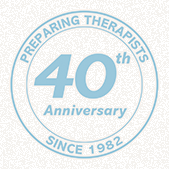
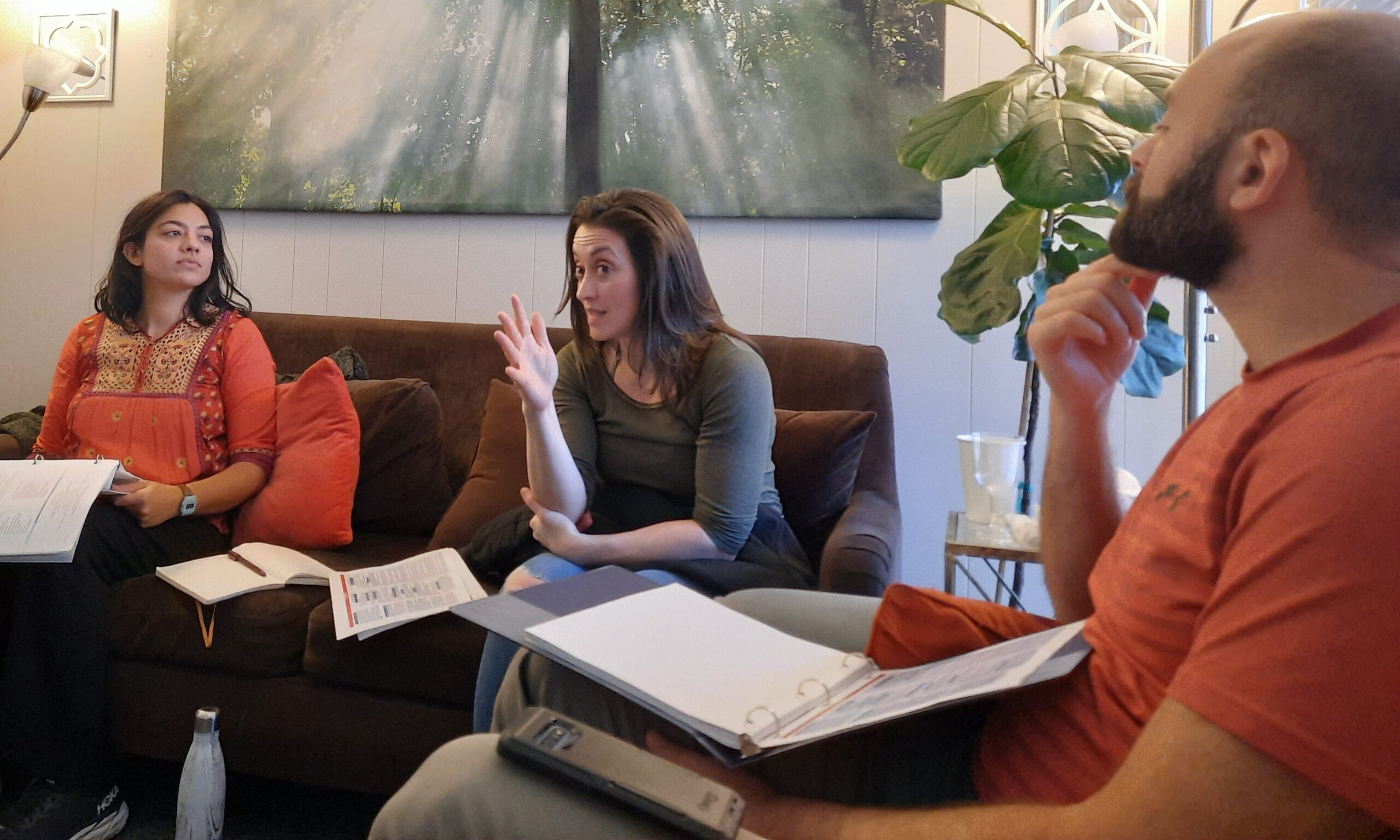
The Process Model is a mindfulness-based, present-moment-oriented, experiential, “meta” model of psychotherapy. A few of the topics covered are:
- Being and Doing: illuminating client processes in the here-and-now, while maintaining a connection to Self and the client
- Three realms of therapy: external, interpersonal, internal
- Working with process: identifying, selecting, enacting, tracking, deepening, resolving
- Working with client’s resistance: recognizing, navigating, and bringing awareness to client’s resistance
- Working with therapist’s resistance: recognizing counter-transference through mindfulness; identifying, transcending, and therapeutically using these issues in working with others.
- Invite the client to their edge and to integrate their work: follow a process to completion and hold space for integration with the clients higher self
Learning Objectives
At the end of the course, participants will be able to:
- Become present and invite client(s) to the present moment
- Identify and work with processes as they show up in the room
- Hold clean, caring boundaries with clients
- Identify the realms of therapy and the modalities used
- Work with resistance, both the clients’ and therapists’
- Track and join client’s process
- Invite a client to their edges and follow through to resolution and integration
The purpose of the Advanced Process Class (APC) is for participants to deepen their experiential and theoretical knowledge of the Process Model. The Process Model was developed by Carol and Don Hadlock. The model is a meta-modality of psychotherapy that is experiential, present-moment centered, therapist-and-client centered, depth oriented and self growth oriented.
Part A deep dives into being and explores the psycho-spiritual foundations of the Process Model: flow, allowance, non-resistance, mindfulness and boundaries.
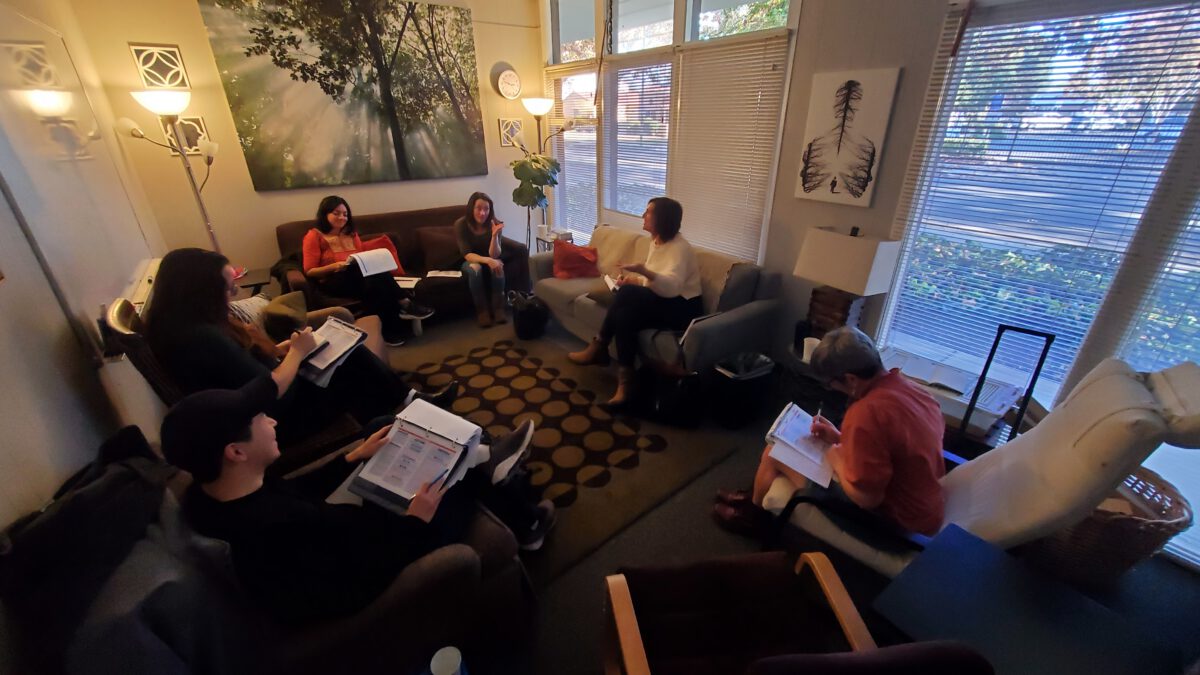
Objectives
At the end of the course, participants will be able to:
- Discover and practice their own internal resources for: flow, boundaries, connection, ownership, resilience and self-growth.
- Identify their counter-transference, transcend counter-transference and creatively use it clinically in individual, couples, families and group settings.
- Identify relational dynamics (couples, families, groups) and parallel process, especially as it applies in class.
- Participants will apply Process Model skills in relationship to self and with other class participants.
- Participants will demonstrate therapeutic Process Model skills: flow and allowance, connect to and transcend self, boundaries, and setting tone and frame.
Prerequisites
Advanced Process Class students are required to have:
- Completed the Basic Process Class
- Completed their mirror training
The purpose of the Advanced Process Class (APC) is for participants to deepen their experiential and theoretical knowledge of the Process Model. The Process Model was developed by Carol and Don Hadlock. The model is a meta-modality of psychotherapy that is experiential, present-moment centered, therapist-and-client centered, depth oriented and self growth oriented.
Part C continues to deepen process skills such as tracking, client resistance, transcending and integrating.

Objectives
At the end of the course, participants will be able to:
- Discover and practice their own internal resources for: flow, boundaries, connection, ownership, resilience and self-growth.
- Identify their counter-transference, transcend counter-transference and creatively use it clinically in individual, couples, families and group settings.
- Identify relational dynamics (couples, families, groups) and parallel process, especially as it applies in class.
- Participants will apply Process Model skills in relationship to self and with other class participants.
- Participants will demonstrate therapeutic Process Model skills: tracking, transcending and integration.
Prerequisites
Advanced Process Class students are required to have:
- Completed the Basic Process Class
- Completed their mirror training
This class is oriented towards spiritual care providers—priests, clergy, chaplains, religious and community leaders—who provide emotional support to community members experiencing life difficulties: a pandemic, divorce, substance abuse, death of a loved one, domestic violence, job loss, etc.

All too often that human experience leads to emotional and psychological wounds that can stifle or disconnect us from our true nature.
Participants will learn skills and practices to support their community members effectively, ethically, and safely: to listen non-judgmentally, to practice good boundaries, to stay free of entanglements, to help their community members pay attention to their mental health.
This training also focuses on the well-being of the spiritual care provider: practicing good self-care, avoiding burn out and vicarious trauma, practicing informed consent, and recognizing their own limitations and making referrals when needed.
The ten-week class will combine lectures with role playing and behind-the-mirror training that PTI has pioneered since 1982.
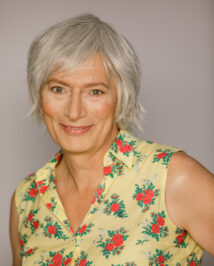
Rev. Alyss Swanson, LMFT
Alyss is a Licensed Marriage and Family Therapist, church deacon and spiritual director at United Methodist Church. She provides Pastoral Psychotherapy — working with others as they explore the inter-relationships between their faith and spiritual beliefs and psychology.
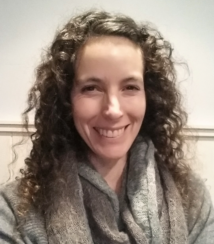
Kristen Bragg, LMFT
Kristen is a Master Process Trainer, who utilizes an eclectic approach to therapy as a way to meet the client where they are as well as gently introduce them to a variety of modalities where they can explore the aspects of self they wish to engage and strengthen.

Padmini Nagaraj, LMFT
Padmini is the Training Director at the PTI, where she trains, organizes events, and facilitates the consultation group for licensed clinicians. Additionally, she works with individual, couple, family and group clients in private practice in the East Bay and San Jose.
Some topic covered:
- Being and Doing: illuminating client processes in the here-and-now, while maintaining a connection to Self and the client
- Three realms of therapy: external, interpersonal, internal
- Working with process: identifying, selecting, enacting, tracking, deepening, resolving
- Working with client’s resistance: recognizing, navigating, and bringing awareness to client’s resistance
- Working with care providers’s resistance: recognizing counter-transference through mindfulness; identifying, transcending, and mindfully using these issues in working with others.
- Invite the client to their edge and to integrate their work: follow a process to completion and hold space for integration with the clients higher self
Objectives
At the end of the course, participants will be able to:
- Become present and invite client(s) to the present moment
- Identify and work with processes as they show up in the room
- Hold clean, caring boundaries with clients
- Identify the realms and the modalities used
- Work with resistance, both the clients’ and care providers’
- Track and join client’s process
- Invite a client to their edges and follow through to resolution and integration





